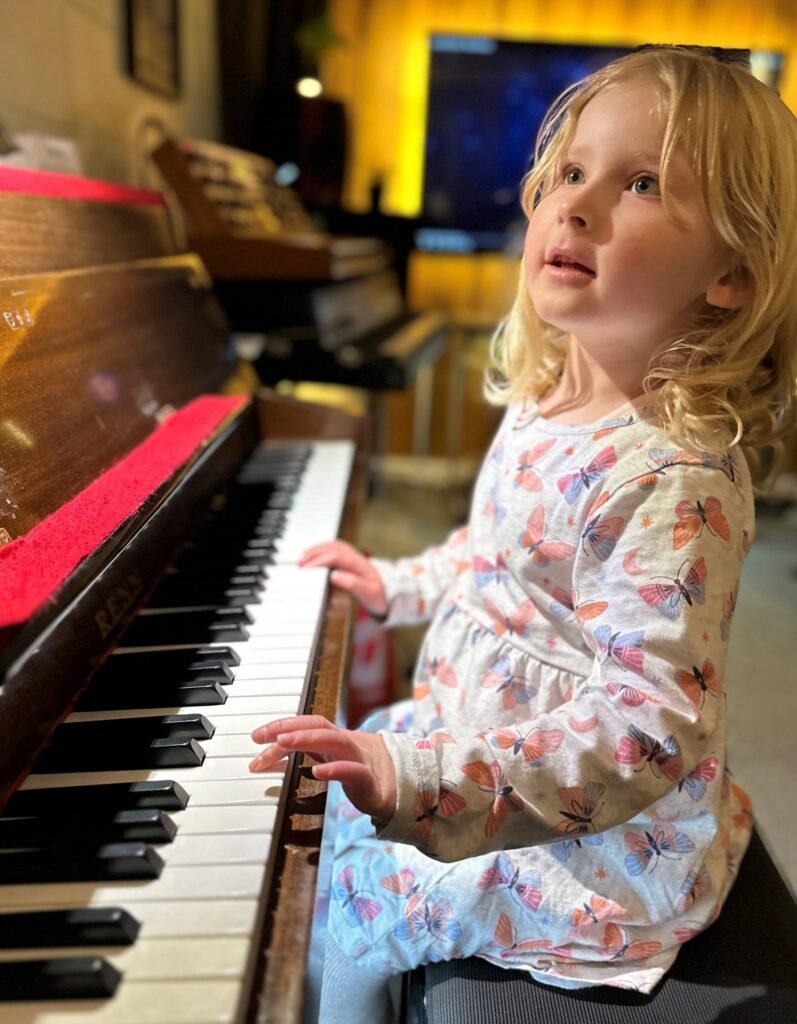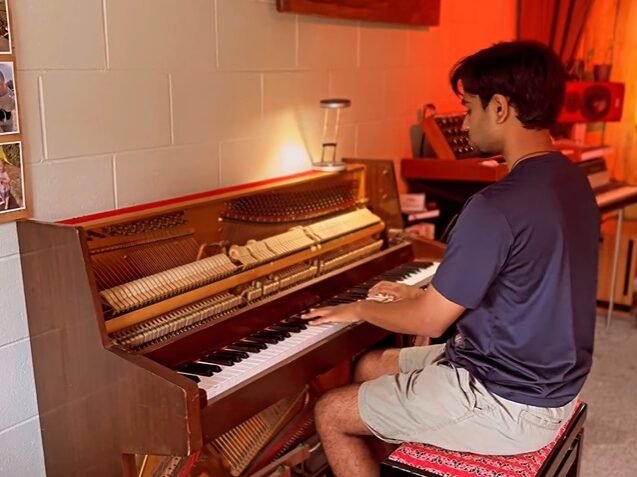To start learning piano, one must focus on fundamental skills, understand the instrument, and practice regularly. Gaining a solid foundation can significantly enhance the learning experience and prepare beginners for more advanced musical journeys.
- Introduction
- Section 2: The Basics of Music Theory
- Practical Tips for Beginner Piano Practice
- Why Choose Timothy William for Your Journey to Start Learning Piano
- Frequently Asked Questions
- How can I start learning piano effectively?
- Should I purchase a piano or keyboard when starting out?
- How important is music theory for beginners?
- How long does it take to learn to play the piano?
- Can I learn to play piano as an adult?
- What should I do if I feel I’m not making progress?
- How often should I practice piano each week?
- Do I need to learn how to read sheet music?
If you have always envisioned yourself playing a melodious tune on a grand piano, it might be the perfect time to start learning piano. Contrary to popular belief, learning how to play the piano is an attainable goal for anyone willing to invest time and effort into mastering this elegant instrument. Playing the piano is not just about tapping keys; it involves a delicate balance of understanding music theory, technique, and expression, all of which cultivate a rich appreciation for music.
Understanding the Piano
Before you dive into the world of piano learning, it’s essential to familiarize yourself with the instrument itself. Pianos come in various sizes and types—each offering unique qualities. Understanding the nuances of digital versus acoustic pianos can be a decisive first step. As you start learning piano, grasping the basic anatomy of a piano, such as keys, pedals, and internal mechanics, can set the stage for a more informed learning path.
The Role of a Teacher
Embarking on a piano learning journey can be greatly enhanced with the guidance of a proficient teacher. For those in Auckland, New Zealand, engaging with a reputable piano teacher like Timothy William can make a significant difference. A teacher not only imparts essential skills but also motivates and corrects mistakes, enabling students to progress more efficiently. While self-learning is an option, a structured curriculum with expert feedback can accelerate the mastery of this beautiful art form.
Commitment and Practice
One of the primary keys to success in piano learning is consistent practice. Dedicating regular, focused time to practice helps reinforce new concepts and techniques. This commitment is essential for building muscle memory, improving hand coordination, and developing an ear for music. As you start learning piano, set achievable goals, maintain a practice schedule, and celebrate small milestones to keep motivation high.
Finally, remember that perseverance is critical. With the right mindset and resources, you can transform initial curiosity into an invaluable skill that brings joy for years to come.

Section 2: The Basics of Music Theory
As you embark on the journey to start learning piano, understanding music theory is crucial. It serves as the building blocks that make playing piano more intuitive and enriching. Music theory offers a framework that helps you interpret musical compositions, understand rhythm, read sheet music, and communicate musical ideas effectively, all of which are essential skills for budding pianists.
Understanding Scales and Notes
Scales are foundational to learning the piano as they form the basis for melodies and harmonies. A scale is a succession of notes in a specific sequence, and each scale sets the mood for a piece of music. Familiarising yourself with the major and minor scales is a good starting point. These not only enhance your finger technique but also improve your ability to recognise pitch and create harmonious accompaniments. Notes, on the other hand, are the individual pitches that make up scales and melodies. Each note corresponds to a specific key on the piano. Learning to read these notes on a staff and understanding their place on the piano will shine a light on the language of music.
Reading Sheet Music
For any beginner wishing to start learning piano, the ability to read sheet music is paramount. This skill allows you to play any piece written for the piano, making the vast world of music accessible at your fingertips. A sheet of music is a blueprint consisting of staves, notes, clefs, and key signatures. By understanding these elements, you unlock the ability to visualise and internalise music. Begin with identifying the treble and bass clefs, and learn where each note sits on these staves. Over time, and with practice, you will progress to recognising patterns, rhythms, and dynamics, which elevates your playing from simple note recollection to expressive storytelling.
The Importance of Rhythm and Timing
Rhythm and timing are the heartbeats of music. They drive the tempo and flow of a piece, providing a dynamic quality that can alter the emotion and intensity of a performance. Understanding and practising rhythm are key to developing a steady, confident playing style. Start by learning simple rhythmic patterns and gradually incorporate more complex timings as you become comfortable. Metronomes can be invaluable tools to keep time and help maintain a consistent practice regimen. As your familiarity with rhythm grows, your ability to keep pace with music becomes second nature, allowing you to inject your own artistic interpretation into performances.
The basics of music theory are far from mundane; they are a gateway to musical exploration and creativity. With a solid foundation in theory, the journey to master the piano becomes not only accessible but also immensely rewarding.

Practical Tips for Beginner Piano Practice
Having delved into the fundamentals of music theory, you are now ready to embark on the exciting journey of piano practice. This section offers pragmatic insights and techniques to optimize your practice sessions and foster steady progress in your piano learning journey.
Structured Practice Routines
One key to successful piano learning lies in the consistency and structure of practice sessions. Begin by allocating a dedicated time slot in your daily routine for practice. A focused 20 to 30 minutes of practice, five days a week, can be more effective than sporadic, prolonged sessions. Use a timer to ensure that each practice session covers essential areas: scales, exercises, and pieces you are working on. Rotating focus areas can prevent monotony and help build a well-rounded skill set.
Leveraging Technology and Tools
In today’s digital age, a wealth of tools are available to aid piano learners. Consider using mobile apps like online metronomes, which help maintain timing, or video tutorials to supplement in-person lessons. These resources offer visual and auditory cues, crucial for reinforcing what you learn from your teacher. Additionally, recording yourself playing can provide valuable feedback and track your progress over time.
Balancing Theory and Technique
While music theory forms the foundation of understanding, practical playing hones your skills. Balance your learning approach by integrating these aspects into your practice. Start each session with some theory review to solidify concepts, but spend the majority of time at the keyboard. Focus on hand positioning, finger strength, and transitioning between keys. Remember, playing slowly and accurately is more beneficial than rushing through pieces with errors.
Practicing Patience
Learning piano is a journey that requires patience and perseverance. Beginners often mistake immediate results as a measure of success, but mastery is achieved through steady and incremental progress. Set realistic goals and celebrate small milestones, such as mastering a scale or playing a piece fluently. Remember that every great pianist started as a beginner—your persistence will pay off in time.
With these practical tips, you are well on your way to developing a robust foundation for piano mastery. As you refine your skills, it’s important to consider the guidance of a professional. In the next section, we’ll explore why Timothy William in Auckland, New Zealand, stands out as a premier choice for those seeking expert instruction and support on this path.
Why Choose Timothy William for Your Journey to Start Learning Piano
Embarking on the musical journey to start learning piano demands careful consideration of who will guide you. With numerous piano teachers available, selecting Timothy William offers a distinct advantage, particularly if you are situated in Auckland, New Zealand. Timothy’s approach is characterised by a blend of local expertise, personalised instruction, and a deep commitment to each student’s success.
Experienced Local Experts
Timothy William stands out as an experienced piano teacher grounded in the Auckland music scene. His intimate knowledge of the local culture and musical environment means students receive contextually rich and adaptive learning aligned with their personal goals. Timothy’s reputation as an expert piano teacher in Auckland has been bolstered by years of fostering talent and nurturing beginners into confident pianists.
What Sets Us Apart
One of Timothy’s distinguishing features is his flexible and personalised teaching methodology. By tailoring lessons to meet the unique needs of each student, Timothy ensures that learning is engaging and progresses at a pace comfortable for the learner. This approach is coupled with a warm presence, creating a nurturing environment conducive to creativity and confidence building.
His professionalism and dedication are reflected not only in the structured lesson plans he offers but also in the holistic approach he takes towards piano education. Students are encouraged to connect with the music, explore creative expression, and develop a well-rounded understanding of the instrument’s role in broader musical contexts. This philosophy of education prioritises enjoyment and satisfaction, ultimately leading to sustained practice and significant skill improvement.
Additionally, Timothy William has established a positive reputation amongst students and parents alike, which underscores his reliability and trustworthiness as an instructor. The feedback from his pupils highlights a genuine investment in their progress, making learning under his guidance a rewarding and beneficial experience.
As you consider this pivotal step in your musical journey, choosing the right teacher is critical. Timothy William’s depth of expertise, enthusiasm for teaching, and dedication to student success make him an ideal choice for anyone wishing to start learning piano.
Next, in Section 5, we will address some Frequently Asked Questions to help solve any lingering uncertainties you might have on your path to starting piano lessons. Stay tuned for clarifications on common queries and tips to ease you into your new musical venture.
Frequently Asked Questions
How can I start learning piano effectively?
To start learning piano effectively, begin with understanding the instrument, learn basic music theory, and practice regularly. Consider finding a good teacher who can guide you, especially in the initial stages. Consistent practice and a structured plan are vital for progress.
Should I purchase a piano or keyboard when starting out?
It’s not essential to invest in a grand piano immediately. A good quality keyboard can be a suitable alternative for beginners. Choose a keyboard with weighted keys to mimic a piano’s feel, which is crucial for developing finger strength and technique.
How important is music theory for beginners?
Music theory is fundamental to understanding how music works. It helps in reading sheet music, understanding scales, chords, and progressions, which are essential for any pianist. However, it can be learned alongside practical playing to keep the learning process engaging.
How long does it take to learn to play the piano?
The time it takes to learn piano depends on individual goals and the amount of practice dedicated. As a general guideline, with regular practice, you might start playing simple pieces within a few months. Many find that leveraging structured lessons with Timothy William in Auckland improves learning speed significantly.
Can I learn to play piano as an adult?
Absolutely! Adult learners can achieve success at the piano with dedication and consistent practice. While children often learn languages and instruments quickly, adults have the advantage of better discipline and understanding, which can aid their musical journey.
What should I do if I feel I’m not making progress?
If you feel stuck, reassess your practice routine. Are you dedicating enough time? Are you balancing theory and practical playing? It may also be helpful to seek feedback from a teacher or engage in new challenging pieces to push your boundaries.
How often should I practice piano each week?
Aim for at least 20-30 minutes a day, five days a week. Regular, short practice sessions are generally more effective than less frequent, longer sessions. Consistency is key to developing skills gradually over time.
Do I need to learn how to read sheet music?
While it’s possible to learn piano without reading sheet music, it significantly broadens repertoire options and deepens musical understanding. It may take time, but being able to read music is a valuable skill for serious learners.




